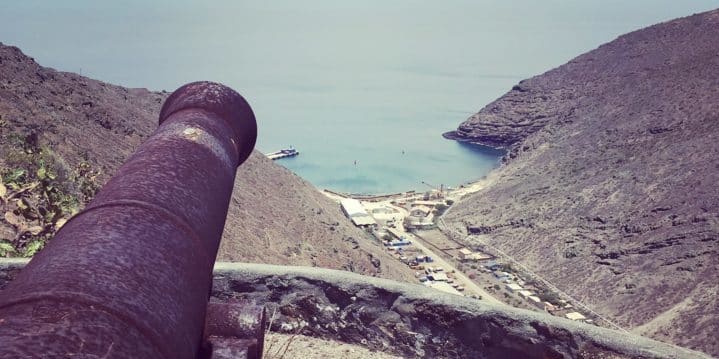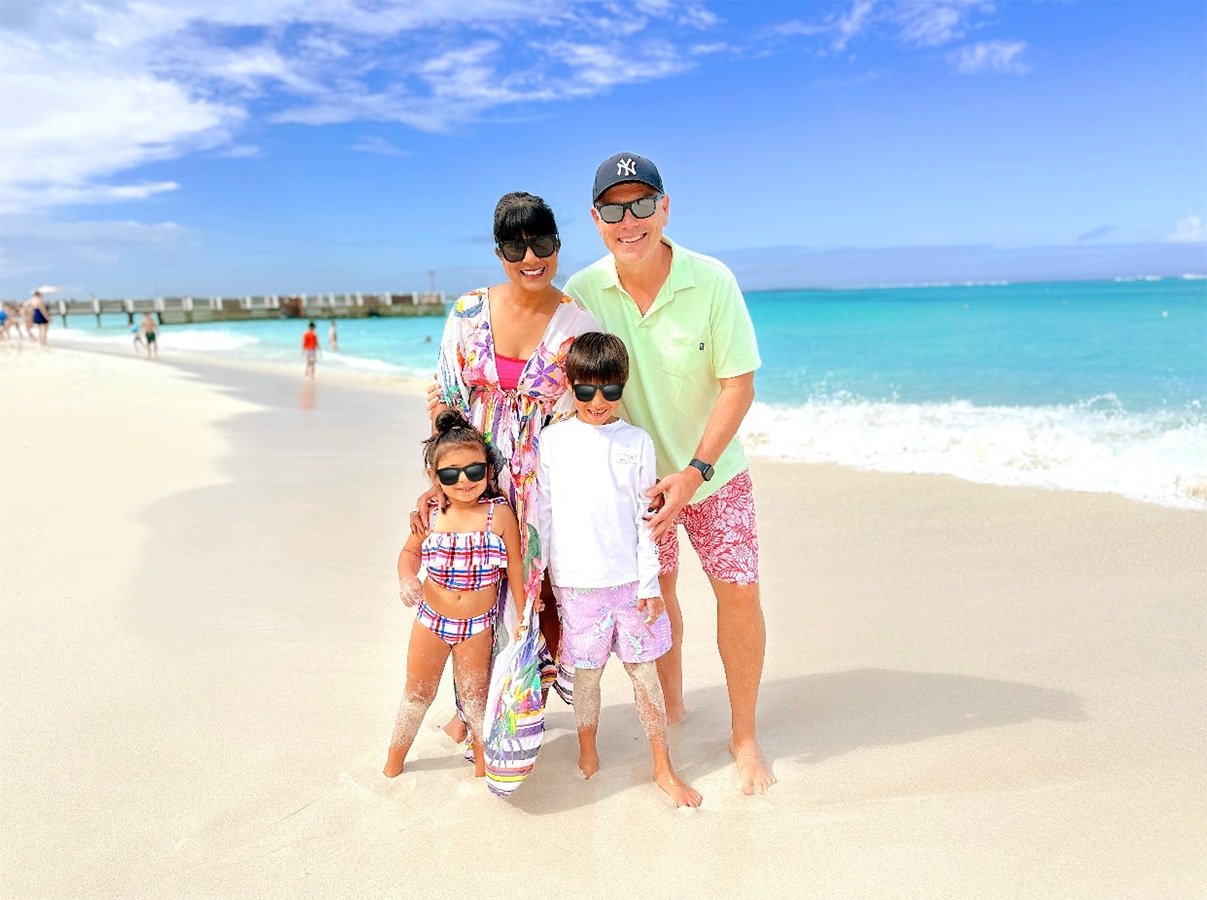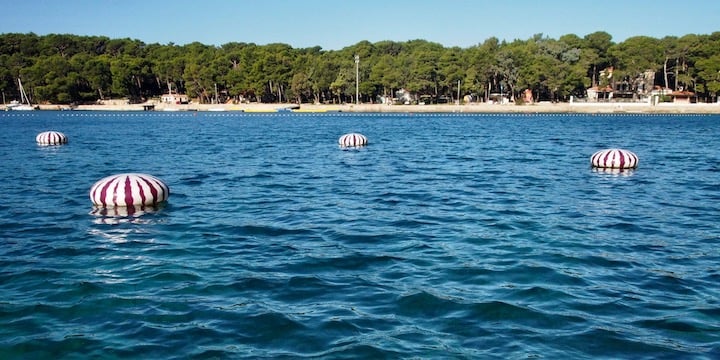 Editor’s note: Contributor Victoria Thorogood left her life in Essex, UK, for a life on a remote island in the South Atlantic: St. Helena. Here, she offers JohnnyJet.com readers 10 things to know about this emerging paradise.
Editor’s note: Contributor Victoria Thorogood left her life in Essex, UK, for a life on a remote island in the South Atlantic: St. Helena. Here, she offers JohnnyJet.com readers 10 things to know about this emerging paradise.
1. It’s remote
Situated 2,500 miles from Rio de Janeiro to the west and 1,210 miles from Namibia/Angola border to the east, St. Helena is smack-bam in the middle of absolutely nothing. Just a lot of ocean and marine life. Currently there is no commercial airport and the only way to arrive on St. Helena is to dock in James Bay after a five-day ride from Cape Town on the last remaining Royal Mail ship. A unique experience. An airport has been built, but due to wind shear problems larger planes have encountered there, it is unsuitable for standard passenger planes. Currently the contract for lighter aircraft is out to tender now and we are eagerly awaiting the results of the bids.
2. The British are in charge
As a British Overseas Territory, much like Puerto Rico is to the United States, the people of St. Helena (known as Saints) have British passports and can freely live and work over there. The overseas development fund also heavily subsidises the island to improve the quality of life for residents. Exports are limited to Tungi spirit (made from the fruit of the prickly pears), coffee that is some of the most expensive in the world, and postage stamps. Though with the arrival of the airport, tourism may soon play a far larger role than it currently does in the island’s economy.
 3. It is small
3. It is small
With a population of 4,200-4,500 situated on a landmass of ten miles by five miles, there aren’t many places on St. Helena you can go to hide or get away from everyone. That said, the landscape—due to the sharp valleys and undulating hills—makes it feel somewhat bigger. The ocean is just fantastic. If you love snorkelling/scuba diving, then it’s heaven, with shipwrecks and abundance of sea life in clear waters around the island.
4. Driving here is like learning all over again
They drive on the left like in the UK, but that’s where the similarities end. Like sharp inclines and blind bends? Then St. Helena is the place for you. Nearly all the roads are single track and require giving way to cars coming up. That means that if you are making your way down the hill and you meet something coming up, you are the one reversing back up to a spot where you can pull in. Not so easy. Also, don’t be like me and bring a smart car to the island. They like simple-to-fix cars that they have spare parts for, like Fords or Range Rovers. I have been waiting six weeks to get a part from the UK and even when it arrives, I’m dubious that it will work. The use of seatbelts is currently being debated. Many locals won’t wear them due to the fear of being trapped in if their cars were to go off the island’s many cliff edges. Yikes.
 5. The supply of food is variable
5. The supply of food is variable
There are three main sources of food for the island. Imports from the UK supermarkets, South African imports and locally grown/slaughtered food. Unless you get in with the “growers” (local people that grow their own produce), you will find the supply of fresh fruit and vegetable rather slim pickings. I will never forget going into a grocery store when I got here to find the vegetable isle empty apart from one lonely bag of potatoes. But there are enough canned and frozen things to keep you going. I just never thought I’d have fantasies about lettuce. Also, you will see no Starbucks or McDonald’s or any other global chains here. It is an island that does not focus its efforts on wooing the tourists. The non-touristy nature of the island is very much part of its charm.
 6. The people are warm
6. The people are warm
The Saints of St. Helena are warm, welcoming people with a peaceful and easy-going attitude. They wave to each other when passing by in the car and you don’t often go past someone in the street without a quick “Hi” and chat.
7. The dialect is strong
There is only really English spoken here (apart from foreign visitors), but the accent and dialect can take some getting used to. The way of speaking is unique and I think it sounds like a mixture of South African and rural English.
8. There is a lot of history here
St. Helena has been inhabited since the Portuguese discovered it in 1502 and the museum in Jamestown is well worth a visit. From the imprisonment of Napoleon to the shameful story of the African slave trade, St. Helena has been involved in many historic world events. If you are interested in the history of Napoleon’s final days, his house is very well-preserved and you can also see where he was initially buried before he was returned to France.
 9. The hikes are breath-taking and paths are empty
9. The hikes are breath-taking and paths are empty
There aren’t many people to bump into! My favorite walks have been South West Point and Diana’s Peak, which at 823 meters is the highest point on St. Helena. If you like stunning scenery all to yourself, this is the place to come to. The weather is fairly constant year-round, with temperatures 70-80ºF (20-27 ºC) for much of the year. June, July and August are cooler in the early mornings and evenings.
 10. It’s among the NYT‘s “Top 50 Places to Visit” in 2017
10. It’s among the NYT‘s “Top 50 Places to Visit” in 2017
Most people won’t know where it is when you tell them you are off to St. Helena, but due to being named to The New York Times‘ “Top 50 Places to Visit” 2017, it won’t be long before this changes. Geographically it’s just a speck on the world map, but the experiences you can have on St. Helena will ensure you will go home with some unique stories, stunning photographs and lifelong memories. Come before the rest of the world discovers it!








Love this article Victoria! Really interesting about a place of the world very few of us know anything about!
If you want to know many more things about St Helena,
I had a brief visit to St Helena with a cruise ship. I loved the atmosphere but obviously there is a lot I haven’t seen. I am a Scottish immigrant and found it very warm – it wasn’t even summer. I liked the idea that they post information when a ship is coming in with supplies.
I’m interested in anything Napoleon but reading about the Island it’s self peaked my attention , I live in NYC and I suppose I would have to go to South Africa and make the jump from there- are there many hotels there ? How reasonable are the rates ? I have sooo many questions like WiFi ? Electrical outlets ? Phone service ? Doctors and hospitals ? Pharmacies ? Restaurants I suppose I sound like the typical American wanting all my creature comforts .
Interesting write up about the Island and your experience, we are COVID free at the moment so isolation works this time around, for visitors in the future coming to St Helena and looking for a choice of accommodation visit https://www.propertyfinder.sh/ there are many options to choose from.